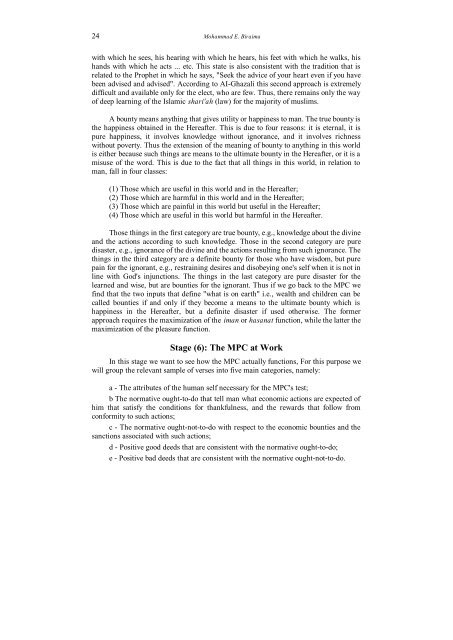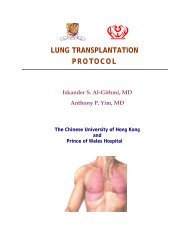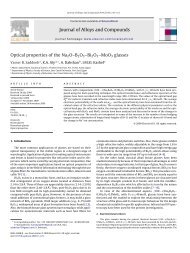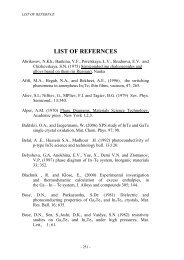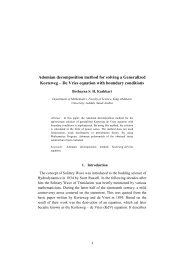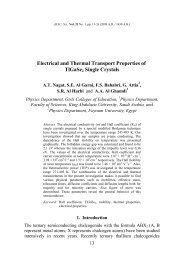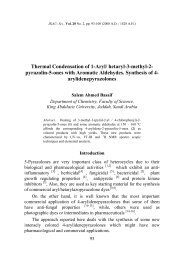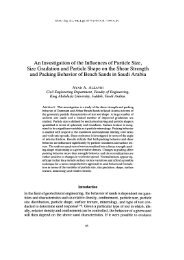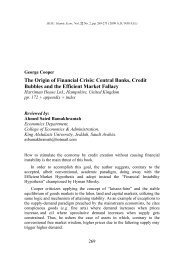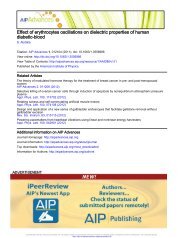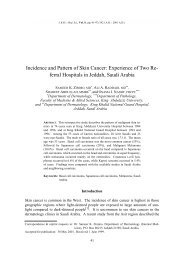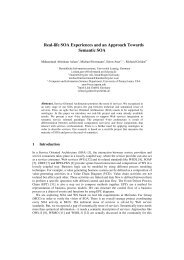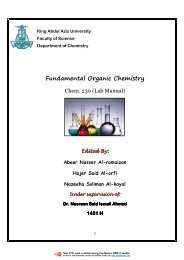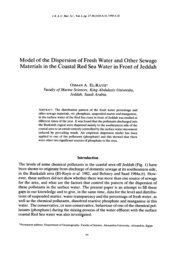A Qur'anic Model for a Universal Economic Theory
A Qur'anic Model for a Universal Economic Theory
A Qur'anic Model for a Universal Economic Theory
You also want an ePaper? Increase the reach of your titles
YUMPU automatically turns print PDFs into web optimized ePapers that Google loves.
24 Mohammad E. Biraima<br />
with which he sees, his hearing with which he hears, his feet with which he walks, his<br />
hands with which he acts ... etc. This state is also consistent with the tradition that is<br />
related to the Prophet in which he says, "Seek the advice of your heart even if you have<br />
been advised and advised". According to AI-Ghazali this second approach is extremely<br />
difficult and available only <strong>for</strong> the elect, who are few. Thus, there remains only the way<br />
of deep learning of the Islamic shari'ah (law) <strong>for</strong> the majority of muslims.<br />
A bounty means anything that gives utility or happiness to man. The true bounty is<br />
the happiness obtained in the Hereafter. This is due to four reasons: it is eternal, it is<br />
pure happiness, it involves knowledge without ignorance, and it involves richness<br />
without poverty. Thus the extension of the meaning of bounty to anything in this world<br />
is either because such things are means to the ultimate bounty in the Hereafter, or it is a<br />
misuse of the word. This is due to the fact that all things in this world, in relation to<br />
man, fall in four classes:<br />
(1) Those which are useful in this world and in the Hereafter;<br />
(2) Those which are harmful in this world and in the Hereafter;<br />
(3) Those which are painful in this world but useful in the Hereafter;<br />
(4) Those which are useful in this world but harmful in the Hereafter.<br />
Those things in the first category are true bounty, e.g., knowledge about the divine<br />
and the actions according to such knowledge. Those in the second category are pure<br />
disaster, e.g., ignorance of the divine and the actions resulting from such ignorance. The<br />
things in the third category are a definite bounty <strong>for</strong> those who have wisdom, but pure<br />
pain <strong>for</strong> the ignorant, e.g., restraining desires and disobeying one's self when it is not in<br />
line with God's injunctions. The things in the last category are pure disaster <strong>for</strong> the<br />
learned and wise, but are bounties <strong>for</strong> the ignorant. Thus if we go back to the MPC we<br />
find that the two inputs that define "what is on earth" i.e., wealth and children can be<br />
called bounties if and only if they become a means to the ultimate bounty which is<br />
happiness in the Hereafter, but a definite disaster if used otherwise. The <strong>for</strong>mer<br />
approach requires the maximization of the iman or hasanat function, while the latter the<br />
maximization of the pleasure function.<br />
Stage (6): The MPC at Work<br />
In this stage we want to see how the MPC actually functions, For this purpose we<br />
will group the relevant sample of verses into five main categories, namely:<br />
a - The attributes of the human self necessary <strong>for</strong> the MPC's test;<br />
b The normative ought-to-do that tell man what economic actions are expected of<br />
him that satisfy the conditions <strong>for</strong> thankfulness, and the rewards that follow from<br />
con<strong>for</strong>mity to such actions;<br />
c - The normative ought-not-to-do with respect to the economic bounties and the<br />
sanctions associated with such actions;<br />
d - Positive good deeds that are consistent with the normative ought-to-do;<br />
e - Positive bad deeds that are consistent with the normative ought-not-to-do.


